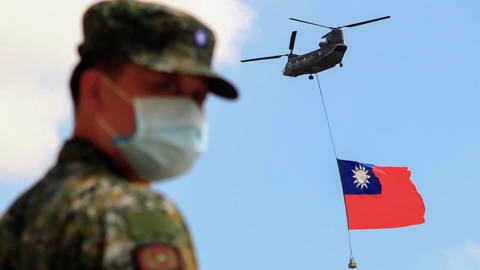Trouble over Taiwan
In the Sino-American great-power drama, Taiwan has taken center stage, as China has ramped up pressure on the island. How much danger is Taiwan in – and how far will the US go to defend it?
Listen and subscribe to all episodes from your favorite podcast app. Find Opinion Has It on Apple Podcasts, Google Podcasts, Acast, or via RSS Feed. Have a suggestion for an episode? Email us at podcasts@project-syndicate.org.
Transcript
Elmira Bayrasli: Welcome to Opinion Has It. I’m Elmira Bayrasli.
Before we start today’s episode, I wanted to share some news. This is my last turn at the mic for Opinion Has It. After nearly three years, the podcast will be reaching its end. We’ve really enjoyed creating these episodes for you. I hope that you’ve learned as much as I have. And if you’ve missed any of our past episodes, I hope you’ll give them a listen. Now for today’s episode.
In the Sino-American great-power drama, Taiwan has taken center stage.
Archive Recording: The US and China appear to be entering dangerous territory over Taiwan.
Archive Recording: Tensions have flared around the Taiwan Strait.
Archive Recording: We’re talking about the giant issue of Taiwan.
Archive Recording: The main story tonight concerns Taiwan.
